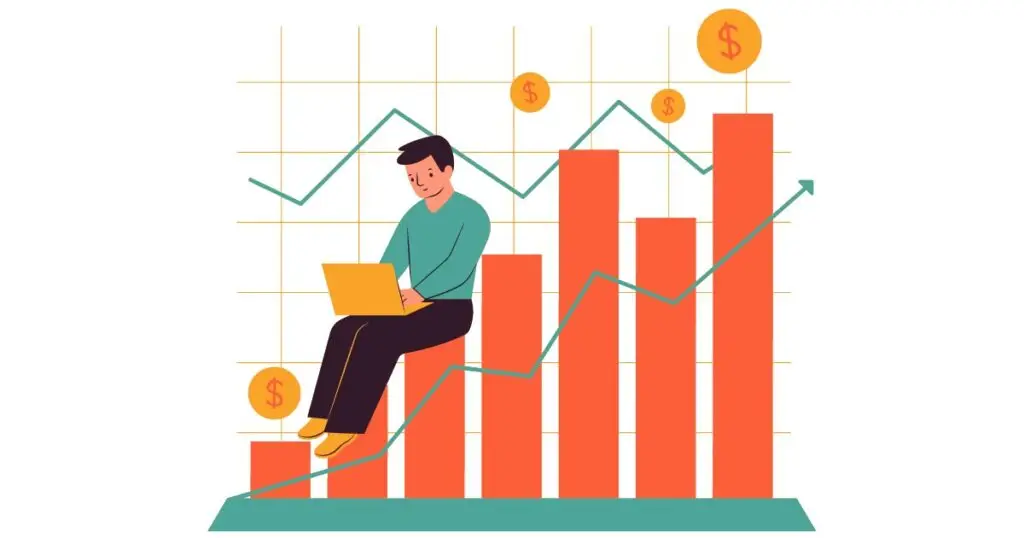
Paying off debt can be a long and challenging journey, but staying motivated throughout the process is crucial for success. Whether you’re dealing with credit card balances, student loans, or other types of debt, the key to overcoming it lies in consistent effort and a strong mindset. In this article, we’ll explore the importance of staying motivated while paying off debt and provide 10 practical tips to help you stay on track and reach your financial goals.
Why Motivation is Key When Paying Off Debt
Paying off debt often requires significant lifestyle changes, including cutting back on expenses, creating a strict budget, and making regular payments. It’s easy to lose motivation along the way, especially when progress seems slow. However, staying motivated is essential because:
- Maintains Consistency: Motivation keeps you consistent in making payments and sticking to your budget, which is vital for reducing debt over time.
- Reduces Stress: Staying motivated helps you maintain a positive outlook, reducing the stress and anxiety that often accompany debt.
- Achieves Long-Term Success: The more motivated you are, the more likely you are to achieve your goal of becoming debt-free.
1. Set Clear and Achievable Goals
The first step to staying motivated while paying off debt is to set clear and achievable goals. Break down your debt into manageable chunks and set specific milestones you want to reach. For example, instead of focusing solely on the total amount you owe, set a goal to pay off $1,000 in three months.
- Tip: Use the SMART goal framework—Specific, Measurable, Achievable, Relevant, and Time-bound—to set realistic goals that keep you motivated.
2. Track Your Progress Regularly
Tracking your progress is a powerful motivator when paying off debt. Seeing your balances decrease over time can give you a sense of accomplishment and encourage you to keep going. Use a spreadsheet, an app, or even a visual chart to monitor your progress.
- Tip: Celebrate small victories, like paying off a credit card or reaching a savings milestone. This reinforces positive behavior and keeps you motivated.
3. Create a Budget That Works for You
A well-structured budget is essential for paying off debt. By tracking your income and expenses, you can identify areas where you can cut back and allocate more money toward debt repayment. Make sure your budget is realistic and allows for some flexibility, so you don’t feel too restricted.
- Tip: Include a small amount of discretionary spending in your budget. Allowing yourself occasional treats can prevent burnout and keep you motivated.
4. Automate Your Payments
One of the easiest ways to stay on track with paying off debt is to automate your payments. Set up automatic payments for your loans, credit cards, and other debts so you never miss a due date. This ensures that your payments are consistent and helps you avoid late fees and penalties.
- Tip: If possible, schedule your automatic payments for right after you receive your paycheck. This reduces the temptation to spend the money on other things.
5. Surround Yourself with Support
Having a strong support system can make a big difference in your motivation levels. Share your debt repayment goals with trusted friends or family members who can offer encouragement and hold you accountable. You might also consider joining online communities or forums where others are also paying off debt.
- Tip: Engage in regular check-ins with your support group to discuss your progress, challenges, and any adjustments you need to make.
6. Focus on the Benefits of Being Debt-Free
Staying motivated is easier when you focus on the long-term benefits of being debt-free. Imagine the freedom of not having monthly debt payments, the ability to save and invest more, and the reduced financial stress. Keep these benefits in mind whenever you feel discouraged.
- Tip: Create a vision board or list of goals that you can achieve once you’re debt-free. This visual reminder can keep you focused on the bigger picture.
7. Reward Yourself for Milestones
While paying off debt, it’s important to reward yourself for reaching key milestones. These rewards don’t have to be expensive; they can be simple treats like a movie night, a nice meal, or a small purchase. The key is to acknowledge your hard work and keep your spirits high.
- Tip: Plan your rewards in advance and make them proportional to the milestones you achieve. This adds an extra layer of motivation to keep going.
8. Keep Learning About Personal Finance
Education is a powerful tool for staying motivated. The more you learn about personal finance, the more confident and empowered you’ll feel in your ability to manage and reduce your debt. Read books, listen to podcasts, or take online courses related to budgeting, saving, and paying off debt.
- Tip: Share what you learn with others. Teaching or discussing personal finance topics can reinforce your knowledge and keep you engaged in your debt repayment journey.
9. Stay Flexible and Adaptable
Life is unpredictable, and you may encounter setbacks while paying off debt. It’s important to stay flexible and adapt your plan as needed. If an unexpected expense arises, adjust your budget and repayment strategy without losing sight of your overall goal.
- Tip: Build an emergency fund to cover unforeseen expenses. This can prevent you from taking on new debt and keep you on track with your repayment plan.
10. Visualize Your Success
Visualization is a powerful technique that can help you stay motivated while paying off debt. Take a few moments each day to imagine what your life will be like once you’re debt-free. Picture the financial freedom, the reduced stress, and the opportunities that will be available to you.
- Tip: Pair visualization with affirmations that reinforce your commitment to becoming debt-free. Phrases like “I am capable of paying off my debt” or “I am making progress every day” can boost your confidence and motivation.
Conclusion
Paying off debt is a journey that requires dedication, persistence, and a strong sense of motivation. By setting clear goals, tracking your progress, automating payments, and staying focused on the benefits of being debt-free, you can maintain the motivation needed to achieve your financial goals. Remember to reward yourself for milestones, stay flexible, and keep learning about personal finance to stay on track. With the right mindset and strategies, you can successfully pay off your debt and enjoy the financial freedom that comes with it.
Frequently Asked Questions
1. What is the best way to stay motivated while paying off debt?
Setting clear goals, tracking your progress, and focusing on the benefits of being debt-free are key strategies for staying motivated while paying off debt.
2. How can I track my debt repayment progress?
You can track your progress using a spreadsheet, an app, or a visual chart. Regularly monitoring your progress can keep you motivated and on track.
3. Should I automate my debt payments?
Yes, automating your payments ensures consistency and helps you avoid late fees and penalties, making it easier to stay on track with your debt repayment plan.
4. How do rewards help in paying off debt?
Rewarding yourself for reaching milestones can keep you motivated and prevent burnout. It’s important to acknowledge your progress and hard work.
5. What should I do if I encounter setbacks while paying off debt?
Stay flexible and adapt your plan as needed. Building an emergency fund can help cover unexpected expenses and keep you on track with your repayment goals.
Thank you for reading! We hope this guide on paying off debt helps you stay motivated and reach your financial goals. Be sure to check out our other articles for more tips on personal finance and debt management.


